Click here to return to the event page.
Professional Development for Educators
This Masterclass is delivered in partnership with inclusionED presenters Elizabeth Salles and Nicole Torres, and Dr Matt Capp. It will cover a range of relevant topics for any educator supporting Autistic students in the classroom. Attendees will have the opportunity to bring work units or tasks along to explore how they can apply inclusive teaching strategies, and to learn strategies that benefit all students while supporting neurodivergent and Autistic students in particular.
Although the Masterclass will be delivered as part of the Spectrum Space Symposium 2023, educators can choose to attend the Masterclass only. We wanted to accommodate as many people as possible, so will be delivering the Masterclass twice, on both Friday 3 November and Saturday 4 November, using the same content and speakers.
An initiative of Autism CRC, inclusionED is an online professional learning community, providing free evidence-based and research-informed teaching practices and tools to support diverse learners in inclusive classrooms. In 2022 Nicole Torres and Elizabeth Salles from inclusionED, presented at ACHPER Victoria on supporting students’ sensory needs in PDHPE. They will also present this year at EduTECH in Melbourne on sensory needs and the inclusive classroom.
Masterclass Outline
Sessions 1-2: Developing inclusive classrooms through Universal Design for Learning
The session will start by exploring the major barriers to the learning process.
Key concepts include:
Sessions 3-4: Exploring inclusive practices and strategies to supporting neurodivergent learners
Key concepts include:
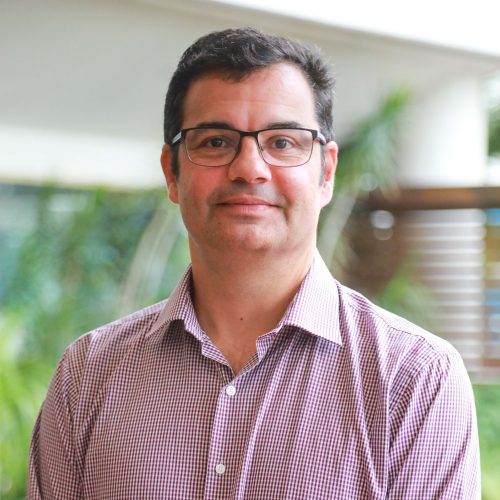
Three words can be used to describe Adam; quiet, determined and inclusive. Adam is a Bardi man from Derby Western Australia and has two children, 13 and 9 year old girls. The 9 year old is their foster child and is on the Spectrum. Adam has an extensive history of working within health and has a BSc Science, Paramedical and a Master Public Health (Aboriginal Health and Wellbeing). He has a history of working in the custodial setting developing and delivering health education programs to adults in custody and within the juvenile detention setting, lecturing in Indigenous Health at University and now with Positive Partnerships. Adam is passionate about working with Aboriginal and Torres Strait Islander communities and education.
Culturally Appropriate Services
Presenting with Rebecca Wahlsten
Current data shows that autism is under-diagnosed among Aboriginal and Torres Strait Islander communities. In many areas, autism is unheard of. Other challenges include lack of access to local services or culturally appropriate diagnostic assessment tools, an absence of trusted relationships, or the fear of shame and blame.
Positive Partnerships provide support for Aboriginal and Torres Strait Islander families with autistic children and the educators who work alongside them. After consultation with communities and the Positive Partnerships National First Nations Reference group, we have developed a range of tools and resources designed for Aboriginal and Torres Strait Islander families.
Our presentation will focus on how we work through community consultation, yarn about autism and explore the free resources that can be used at home, in schools and across other services.
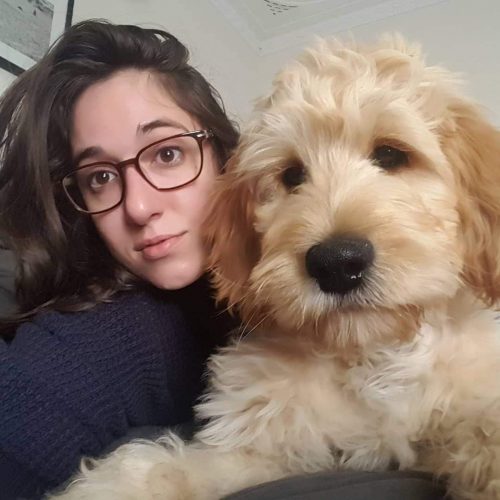
Ana Palacios has a background in the contemporary arts and after receiving an adult diagnoses of autism, she realised her art practice had emerged as a positive adaptation to the challenges of being neurodiverse. Starting at Spectrum Space as a volunteer in 2017, Ana began working as a visual arts facilitator before expanding her role further. She now mainly concentrates on peer work, development of positive identity, as well as development and facilitation of training and educational courses.
Autistic Connection
How do we find meaningful connections in an era of loneliness? Ana Palacios isn’t sure but is willing to have the open and sometimes awkward conversations necessary to start figuring it out.
Drawing from her lived experience and continual learning from her work developing and delivering peer groups on neurodivergent identity and self-understanding, she will share what she has learnt so far in a talk full of tangents, spelling mistakes, dogs and earnest efforts towards radical self-acceptance. Join her and discover in real time where she is going with all this.
Because not even she knows just yet.
And that’s ok.
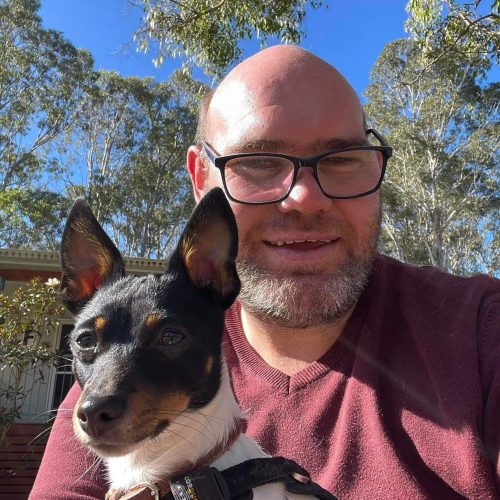
Andrew is a proud intellectually disabled autistic man who has presented in Singapore at APAC in 2019. He has also supported the Special Olympics and was selected to meet the Royal Family. Andrew is passionate about advocating for accessibility and challenging public perception about intellectual disability.
Autistic Adults – Our Time to Shine
Autistic adults have been the subjects of conversation across Australia with the National Autism Strategy and the National Disability Insurance Scheme Review highlighting the emergence of late diagnosed adults who are seeking resources and supports.
Speakers Tammy McGowan, Andrew Radford, Lydia Dean and Kerryn Burgoyne share their individual experiences of navigating adulthood and highlight the barriers and protective factors that apply to their own lives.
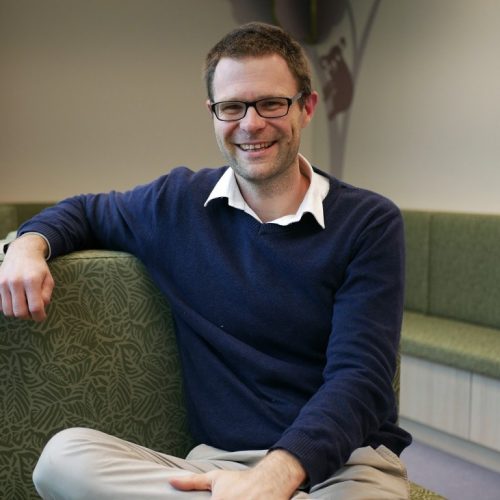
Andrew Whitehouse is the Angela Wright Bennett Professor of Autism Research and the Director of CliniKids at the Telethon Kids Institute. He is also Professor of Autism Research at The University of Western Australia, Research Strategy Director of the Cooperative Research Centre for Living with Autism (Autism CRC) and the current president of the Australasian Society for Autism Research.
At the Telethon Kids Institute he leads a large team that seeks to find new and innovative ways to help each and every child on the autism spectrum reach their full potential. Andrew has published over 250 peer-reviewed journal articles and attracted over $60 million in competitive research grants. He currently presents an internationally syndicated video series called ’60 Second Science”, which has had over 2 million views. He is an advisor to State and Commonwealth Governments on policies relating to children with Autism Spectrum Conditions. He chaired the committee that generated Australia’s first national guideline for autism diagnosis, and co-chaired the committee that developed Australia’s first national guideline for early therapies and supports for autistic children.
Andrew has published one edited book with his twin-brother (Ben), and a popular science book that examined the science behind some of the myths of pregnancy and child development (Will Mozart Make My Baby Smart?). He has also been awarded a Eureka Prize for his research, and is the youngest fellow ever elected to the Australian Academy of Health and Medical Sciences. Prior to coming to the Telethon Kids Institute, Andrew was a Junior Research Fellow at the University of Oxford.
The Autism Landscape in 2023: Where are we, how did we get here, and where are we going?
We are at a time of unparalleled flux in our understanding of autism. We have had a revolution in our thinking about autism, a large increase in the number of people diagnosed with autism, and significant strain on systems that are meant to support autistic people and their families. What are we to make of this? In this presentation, Andrew will discuss the challenges we face in 2023, but also the enormous opportunities that await our community, if only we dare to grab them.
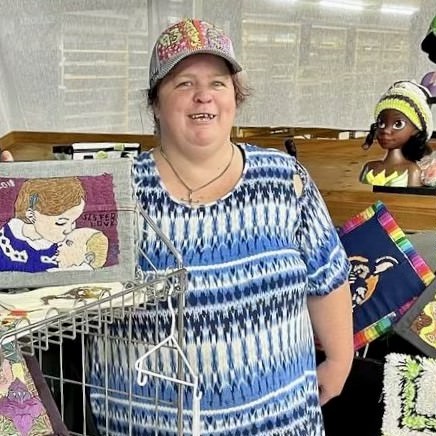
Catherine is a proud, married mother of two children, living with her family in Perth, Western Australia. Catherine and her husband both live with disability, as do their children, and together they have built a disability home to cater to all their family needs. This has given them much needed comfort and stability and allowed their family to flourish. Catherine first started creating her artwork in 2006 after being diagnosed with postnatal depression and found it immensely calming. In 2020 she started her business Let It Glow, and she has seen it go from strength to strength ever since. Catherine is very proud of her Let It Glow journey, is very pleased to share her wisdom and lived experience and hopes you’ll be a part of it!
How to succeed in your Microenterprise
Presenting with Harry Lovekin and Sharna Jarvis
Customised Employment is an individualised approach to support NDIS participants to find and succeed in meaningful employment. A Discovery process enables a person to uncover their hidden talents, skills, passions, interests, and abilities. This information is then used to decide if a Job Carve out or their own Microenterprise would provide the most meaningful employment.
Microenterprises owned by people with disabilities (PWD) are as varied as the people who own and run them. They can provide casual, part time or full-time employment for an individual and even grow into a business that employs others. Different people require different levels and types of supports to run and succeed in their businesses and the vision for these businesses vary greatly. Whether the goal is to generate an income that can support a family, provide work which is valued by a person’s community, or to increase their network of peers, the right planning and support will ensure that PWD thrive in their microenterprises and in their lives.
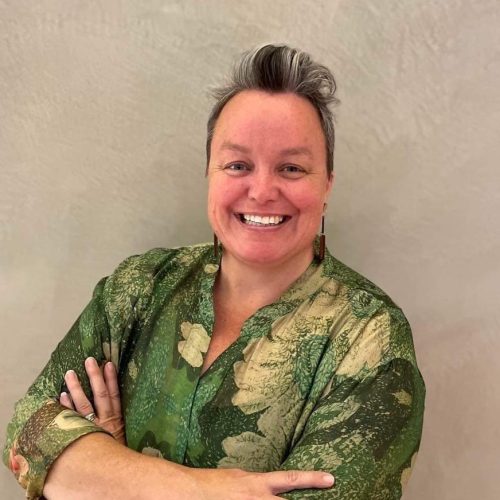
Clare is an experienced presenter renowned for her passionate advocacy in the fields of autism, human rights, and inclusion. As an Autistic individual, Board Secretary for People with Disability Australia (PWDA), Co-chair of the Oversight Council for the National Autism Strategy, and TEDx presenter, Clare brings a unique perspective that intertwines her personal journey with her unwavering commitment to her community. She is dedicated to supporting the creation of inclusive environments where diversity thrives.
Updates on the National Autism Strategy
The National Autism Strategy represents a vital alignment of policy, research and community engagement aimed at enhancing the lives of Autistic individuals and their families. As Co-Chair of the Oversight council for the National Autism Strategy, Clare will provide a comprehensive review of how the Strategy was formed, how the overall process works and key findings from the initial learning phase.
Initial insights from the extensive stakeholder consultations have already led to innovative approaches and have shed light on complex needs and priorities within the Autism community. Clare will update us on the current status of the strategy’s development as well as analysing the intersection of the National Autism Strategy with Australian Disability Strategy, the Convention of the Rights of Persons with Disabilities (CRPD), Closing the Gap initiatives and other concurrent strategies.
The presentation will provide an insight into the planning, coordination and ongoing adjustments integral to the effective development and implementation of a strategy aimed at creating a more inclusive and supportive environment for Autistic individuals and their families.
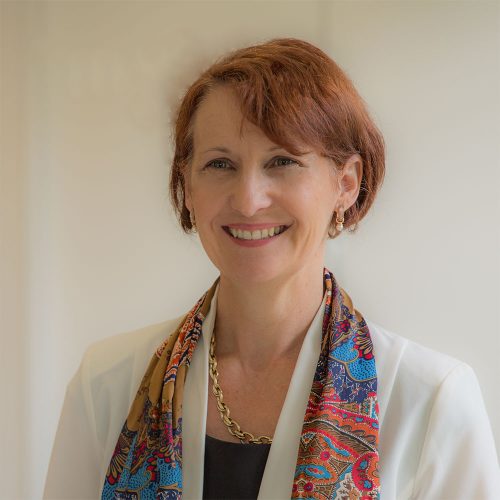
Libby has over 27 years in education as a teacher, consultant, and eLearning designer. She has worked in both the corporate and government sectors designing eLearning solutions, developing and delivering training, and designing organisational learning plans and strategies. As Education Product Manager at the Autism CRC, Libby is responsible for driving the development and delivery of the inclusionED professional learning platform.
Libby has a Bachelor of Education, Post Grad Diploma in Education (IT) and an MBA in Innovation and Leadership. She has presented nationally and internationally at educational conferences on learning and education. She is passionate about education and providing all students with engaging and rich opportunities to reach their potential.
Inclusive Education Masterclass
Presenting with Dr Matt Capp and Nicole Torres
Click here for details.
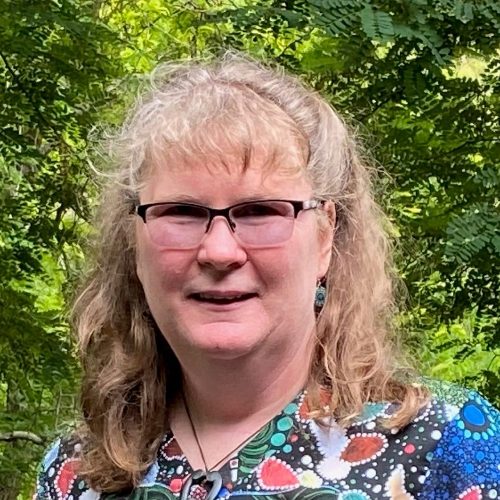
Dr Emma Goodall is the Director of South Australia’s Office for Autism which sits within the Department for Premier and Cabinet. Her team is tasked with improving life outcomes for autistic individuals in South Australia. Emma has worked extensively in the area of autism, education, research and public policy and teacher training across Australia, New Zealand, the UK and mainland Europe. She is an autistic researcher, writer, educator and parent of an autistic adult. She has a passion for using translation research to support policy and practice across the lifespan and a particular passion for the use of interoception strategies to support emotional wellbeing.
Office for Autism
Dr Emma Goodall will present a summary of the first six months work of the South Australian Office for Autism, a cross government initiative to improve the life outcomes of autistic individuals. Emma is the Autistic director of the Office which is focusing on a range of policy initiatives and implementing two trials of the South Australian Autism Inclusion Charter. The Office works closely with a range of stakeholders to drive community buy in to its work.
Interoception and Behaviour Management tools
Interoception is ‘the feeling of knowing what is happening in your body’, an internal sensory system where internal physical and emotional states of the body are noticed, recognised/identified and responded to. Interoception skills are required for a range of functions such as knowing when to go to the toilet, being aware of becoming angry or upset and being able to manage emotions proactively. When children and young people have poor interoception they can present with what is typically viewed as challenging behaviour. This session helps foster an understanding of how stress and distress impact on behaviour, and the link with interoception. Simple activities to teach interoception, which over time lead to self-regulation, will be demonstrated so delegates can implement these in the home or in the classroom. Delegates will also learn how to use three easy interoception activities and plan how to support children, young people and adults to manage their emotions, feelings and behaviour.
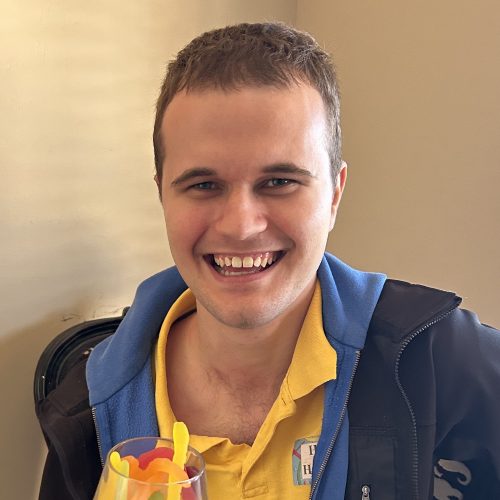
Harry is the owner of Harry’s Little Box of Happiness and loves basketball, football, cooking, music and being with friends. Harry started Harry’s Little Box of Happiness when he decided working for someone else wasn’t for him. Harry was a born with an intellectual disability and Autism (Level 3) and uses a device for communication. His business has grown from strength to strength since he founded it in 2021 with the support of a dedicated employment team. Harry loves delivering the boxes of happiness himself around the Perth metro area and also posts boxes all over Australia.
How to succeed in your Microenterprise
Presenting with Catherine Wright and Sharna Jarvis
Customised Employment is an individualised approach to support NDIS participants to find and succeed in meaningful employment. A Discovery process enables a person to uncover their hidden talents, skills, passions, interests, and abilities. This information is then used to decide if a Job Carve out or their own Microenterprise would provide the most meaningful employment.
Microenterprises owned by people with disabilities (PWD) are as varied as the people who own and run them. They can provide casual, part time or full-time employment for an individual and even grow into a business that employs others. Different people require different levels and types of supports to run and succeed in their businesses and the vision for these businesses vary greatly. Whether the goal is to generate an income that can support a family, provide work which is valued by a person’s community, or to increase their network of peers, the right planning and support will ensure that PWD thrive in their microenterprises and in their lives.

Jess Rowlings is a qualified speech and language pathologist and co-founder/CEO of Next Level Collaboration, a social enterprise that runs strength-based programs to support neurodiverse children in developing collaborative skills and social connection through cooperative video games. Jess is also a researcher at the Melbourne Graduate School of Education (University of Melbourne) and specialises in the design and analysis of video game-based intervention to build social capacity in neurodivergent children. Jess’ work is informed by her lived experience of receiving autism and ADHD diagnoses as an adult as well as her lifelong love of games. She is passionate about the use of digital games-based learning to promote inclusion and a sense of belonging, and her work has included developing and running a dedicated Minecraft server to support neurodivergent girls and women.
Gaming – Positive Learning Experience
Hosted by Jess Rowlings, this session focuses on the benefits of online gaming in developing skills and knowledge in collaborative teamwork, social capacity, and positive autistic identity. Jess will discuss the structure and design of games that support collaborative teamwork skills during play, what these skills can look like, and how games can be used to support skill development. This session will also cover how gaming and online communities can support social connection and a sense of belonging, along with strategies to support positive gaming and safety when using online platforms.
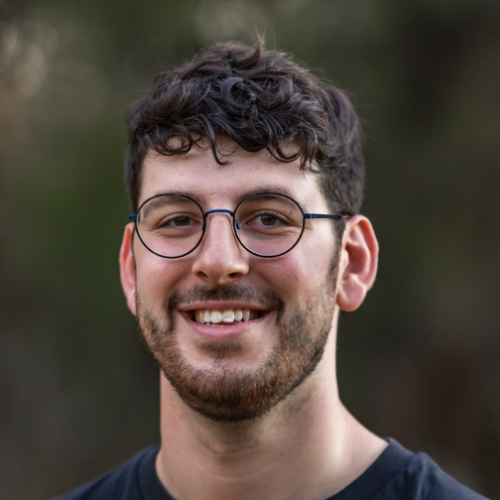
Josh Knuiman is a Senior Exercise Physiologist and Allied Health Team Leader with a passion for creating safe and enjoyable exercise opportunities for neurodiverse children and young people. Josh received a Master of Exercise Science by Research in 2018 investigating factors related to enjoyment and participation in exercise for children with disabilities. He has previously run his own business specialising in supporting autistic children and adolescents to participate in exercise, and now works as a Team Leader and Clinical Lead at Ability Action Australia. Josh loves to utilise creative, fun and simple ways to embed physical activity into life and to generate positive exercise experiences.
The Role of Exercise Physiology in multidisciplinary therapy teams
Exercise Physiologists are university qualified allied health practitioners that specialise in the prescription of exercise to increase independence, participation, motivation, and confidence. As movement specialists, EPs are uniquely placed to provide body-based interventions that underpin a variety of goals. This can include supporting physical skills, social skills, facilitating communication and supporting inclusion.
This session will showcase how an Exercise Physiologist works alongside Occupational Therapists, Speech Pathologists, Behaviour Support Practitioners and other health professionals to enable autistic children, adults, and their families to get more out of life today. Josh will discuss the way an EP can utilise their skillset to support a wide range of goals in a flexible way and demonstrate how you can support the autistic people in your lives to enjoy the benefits of exercise.
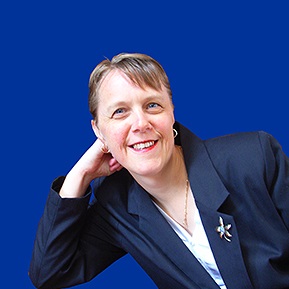
Kerryn was diagnosed with Asperger’s Syndrome at the age of 30. She embarked on a transformative journey of self-discovery. Before her diagnosis, she navigated life unaware of her condition, inadvertedly causing unintended consequences in her interactions. Over time, Kerryn learned vital life skills, mastered social communication, and authored six self-help life course books.
In 2007, she founded her successful venture, KTalk where Kerryn eagerly shares her lived experiences and inspires others. Her journey from self-discovery to empowerment showcases the resilience of the human spirit.
Autistic Adults – Our Time to Shine
Autistic adults have been the subjects of conversation across Australia with the National Autism Strategy and the National Disability Insurance Scheme Review highlighting the emergence of late diagnosed adults who are seeking resources and supports.
Speakers Tammy McGowan, Andrew Radford, Lydia Dean and Kerryn Burgoyne share their individual experiences of navigating adulthood and highlight the barriers and protective factors that apply to their own lives.
Supporting Neurodivergent and Gender Diverse Young People
Presenting with Theresa Kidd

Liz Baird is an autistic Senior Speech Pathologist who is passionate about the provision and promotion of neurodiversity affirming services. She has worked with neurodivergent clients for the past 9 years, supporting them to embrace differences, facilitate authenticity, and live their best life. Liz provides training and consultation on contemporary and evidence-based practice in her role as Neurodiversity Project Lead at Rocky Bay, aiming to shift how disability services are viewed and provided. She is a keen advocate, sharing her perspective and providing education across social media, blogs, guest speaking and workplace training.
A neurodiversity-affirming take on social skills goals
Over the past two decades, many Social Skills Training Programs (SSTPs) and manuals have been developed, all boasting improvements in social skills for autistic populations. Social skills therapy can be easily delivered straight from a manual, workbook, or even story books, to individuals or groups. So, what is the problem?
With growing recognition, autistic populations have advocated that SSTPs don’t benefit them and may even do harm. An increasing body of evidence supports that SSTPs often don’t produce outcomes that are desirable and meaningful to autistic populations, and may be encouraging masking and camouflaging – associated with poor mental health and quality of life outcomes.
However, many autistic people report experiencing difficulties in social situations, impacting on their quality of life. Social skills referrals continue to be made by parents, educations and health professionals seeking support for their autistic individuals to understand and engage in the social world around them. It is evident that Speech Pathologists and Occupational Therapists need to continue to provide supports for social communication, but that we need to adapt our approach to be affirming and responsive. So what can we do instead?
Drawing on the developing research-base, advocacy from the autistic community, national guidelines, and my combined lived-experience with professional knowledge, we will explore guiding principles of neurodiversity-affirming alternatives to social skills therapy. This presentation will empower autistic individuals and caregivers of autistic individuals to seek responsive supports, educators to facilitate meaningful social engagements of autistic students, and health professionals to upskill on contemporary approaches.
This presentation will cover steps and factors to facilitating meaningful and authentic social connection for autistic populations – such as understanding autistic neurology, valuing interests, respecting communication differences, and addressing bi-directional miscommunication.
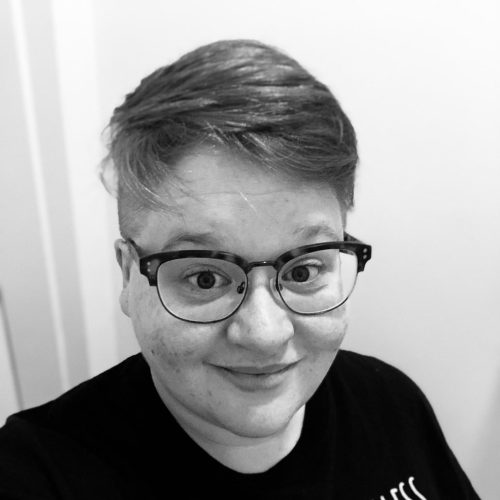
Lydia is an autistic woman who has navigated her way through medical trauma and poor mental health to be a voice to challenge stereotypes about autism and mental health. Lydia has been an International Youth Ambassador representing Australia.
Autistic Adults – Our Time to Shine
Autistic adults have been the subjects of conversation across Australia with the National Autism Strategy and the National Disability Insurance Scheme Review highlighting the emergence of late diagnosed adults who are seeking resources and supports.
Speakers Tammy McGowan, Andrew Radford, Lydia Dean and Kerryn Burgoyne share their individual experiences of navigating adulthood and highlight the barriers and protective factors that apply to their own lives.
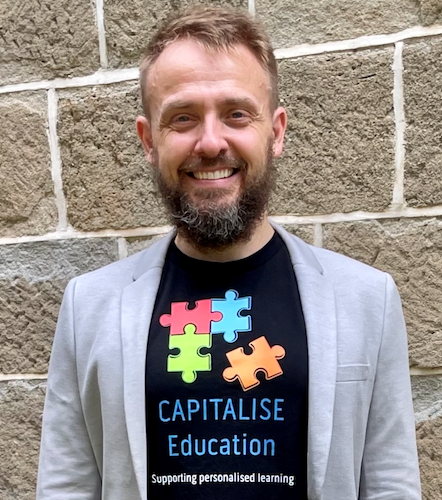
Dr Matt Capp (EdD) is the Director of CAPITALISE Education and one of the world’s leading experts in the areas of Universal Design for Learning. He has over 22 years of experience in primary and secondary schools, as well as universities, supporting students with disability and diverse learning needs. He is also a man on the autism spectrum, who suffers from Post Traumatic Stress Disorder, and brings his lived experience and knowledge to providing personalised learning for all learners, both adults and children.
Inclusive Education Masterclass
Presenting with Elizabeth Salles and Nicole Torres
Click here for details.
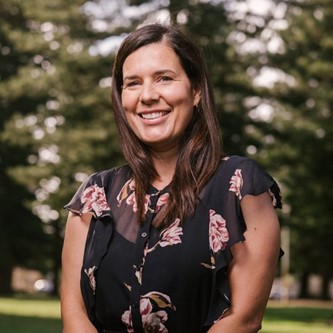
Dr Miriam Kirby is a clinical psychologist passionate about supporting and affirming neurodivergent individuals and their families. Her role at The Kidd Clinic includes providing therapeutic support and treatment of co-occurring mental health conditions to individuals of all ages. In addition to providing supervision, Miriam also provides parenting support and problem-solving sessions and enjoys helping like-minded people connect through small, interest-based groups.
Miriam is highly experienced and skilled in working with PDA clients and their families. Her approach is to offer a low demand, safe space where she works together at a pace that suits her clients. She loves to hear about her client’s strengths and interests and understands their needs and preferences in order to provide an individualised and flexible service. She enjoys trying out new games and resources, adding to her book collection, and participating in professional development to keep her skills and knowledge up to date.
School ‘Can’t’ – Reframing school refusal and assisting Autistic students to re-engage educationally
Presenting with Theresa Kidd
With school being the biggest trigger for anxiety symptoms for Autistic students, being unable to attend school occurs significantly more often compared to non-autistic peers. We prefer to reframe school refusal as ‘school can’t’ because many of our young people would like to be able to attend school but just cannot. Parents may observe verbal and physical refusal, pleading, clinging, crying, aggression and threats as they desperately try to take their child to school. Missing days of school can have a negative effect on academic and social development and can lead to full disengagement from school. This webinar will outline the main reasons why ‘school can’t’ occurs for Autistic students and introduces a model that provides a map for re-engagement as well as a brief overview of alternative education pathways when school is not working.
Participants will receive a copy of the AAA School Reintegration Model and accompanying guide along with other practical templates and resources to assist with School Can’t.
This training is suitable for parents, therapists and teachers and provides:
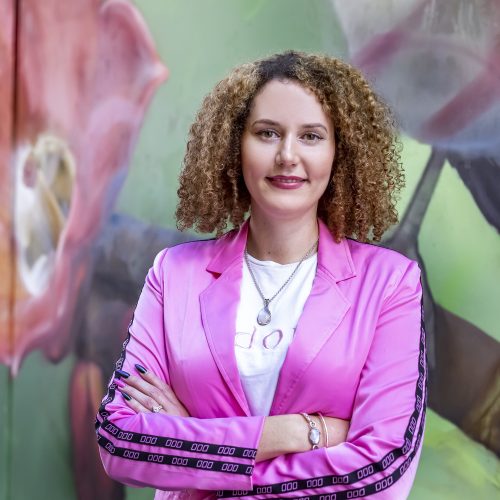
Monique is an Autistic Clinical Psychologist working in private practice in Brisbane Australia. She has an interest in Neurodiversity particularly in women and girls, chronic pain/illness, and trauma. Monique hosts The Neurodivergent Woman Podcast with Clinical Neuropsychologist Michelle Livock where they share free quality psychological information on Neurodiversity in Girls and Women and interview Australian women and non-binary folk about their lived experience of neurodiversity. The podcast has over 500,000 downloads. Monique practices Neurodiversity Affirming therapy which aims to affirm the different neurotype of a neurodivergent person, rather than seeing their neurotype as inherently “bad” or in need of fixing to become neurotypical. It aims for the person to explore their neurodivergent identity and find their own unique strengths. The Neurodiversity Affirming movement comes from the wider social disability movement and is an important therapeutic approach in working with neurodivergent clients. Monique incorporates CFT, ACT, EMDR and aspects of CBT in her practice.
Autistic Burnout
Join Clinical Psychologist Monique Mitchelson on an exploration of Autistic Burnout. Autistic burnout is a phenomenon widely reported in the Autistic population but has not been investigated in research until recent years. Monique will discuss the latest definitions of Autistic Burnout and how it is different to occupational burnout. She will also outline what are the specific signs of Autistic burnout, how burnout affects Autistic people and why, and strategies to assist recovery from and prevention of burnout long term. Prevention of Autistic burnout is vital for Autistic people’s mental and physical health and wellbeing, and unfortunately many Autistic people experience burnout for the first time as young people in school or when transitioning from school to adult life. Education on this topic is critical for schools, health professionals, mental health professionals, parents and Autistic people so that Autistic burnout is accurately recognized and supported.
Chronic Pain and Autism
Join Clinical Psychologist Monique Mitchelson on a discussion on the link between Autism and chronic pain. Monique works with many neurodivergent people who experience chronic pain and chronic health conditions. Although not well known, Autistic children are about twice as likely as their typical peers to experience chronic or repeated pain and those with co-occurring developmental conditions, such as epilepsy or intellectual disability, are even more likely to experience chronic pain (Whitney & Shapiro, 2019). Monique will discuss what the research says about how Autistic people may experience pain differently including the link between interoception and pain, and sensory differences and pain. Monique will also discuss strategies used to manage chronic pain such as pacing and how interoception and co-occurring conditions such as ADHD can impact chronic pain strategies. It is important that health professionals and pain services are aware of the link between chronic pain and Autism as well as Autistic people and their supports so that chronic pain is identified and supported early and in way that is tailored to the person’s neurodivergence.
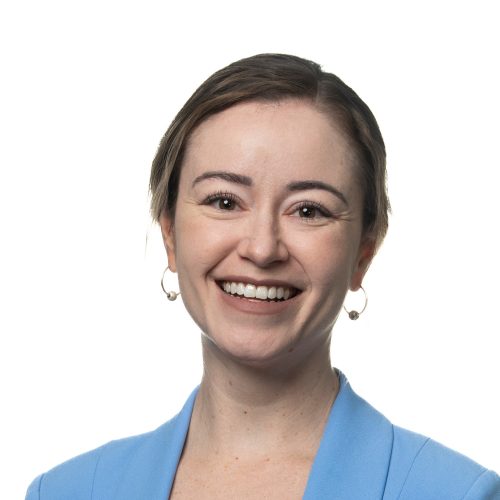
Nicole is passionate about ensuring equitable outcomes in education and committed to championing inclusive education and inclusive teaching practice. She joined Autism CRC in November 2021 as Education Community Coordinator with the Knowledge Translation team. Nicole is working hard to develop a community of practice for inclusionED and offer teachers a space to learn and grow in their inclusive practice. With qualifications in education, training and assessment, and international and community development, Nicole has over 7 years’ experience as a teacher and experience in several not-for-profit and charitable organisations. She has used her skills to facilitate behaviour change programs, develop and deliver training for large-scale social change initiatives, and create a world-first leadership program supporting young people with a disability to become leaders of other young people with a disability. Nicole strives to make a difference through her work.
Inclusive Education Masterclass
Presenting with Elizabeth Salles and Dr Matt Capp
Click here for details.
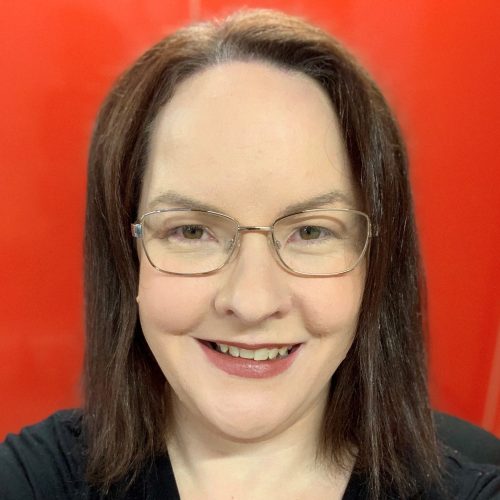
Raelene is an Autistic and ADHDer, Educational Developmental Psychologist, and the Director of Okey Dokey Childhood Therapy, a large paediatric allied health practice in Australia that she runs with her husband, Andrew, who is also Neurodivergent. She is also a lecturer in Child Play Therapy at Deakin University. Raelene has extensive experience working with Neurodivergent children and their families providing educational, social/emotional and parenting support. Raelene is also the mother of three Autistic children and draws on both her personal and professional experience to provide support and guidance to children and families.
Raelene regularly presents webinars for parents and professionals on topics related to supporting Neurodivergent children in the classroom and in other settings, and has presented at international conferences in New York, Macau, Singapore, Prague, Edinburgh, and across Australia.
Raelene is the author of 4 books published by Jessica Kingsley Publishers in London, with her fifth book “A Therapist’s Guide to Neurodiversity Affirming Practice with Children and Young People” due for release in November 2023.
Raelene is passionate about supporting Neurodivergent children to understand and accept who they are — and to empower them to be themselves in a society that still has a long way to go in celebrating difference.
Understanding and Supporting Autistic Play
Play is widely accepted as an important part of child development with The World Health Organisation considering the opportunity to play as a child’s human right. Play can be broadly defined as an activity that is child-led, enjoyable, and internally motivated, and there are many types of play that can be engaged in alone or with others such as construction play, rough and tumble play, sensory play, and pretend play.
With such broad and varied definitions of the types of play, and the idea that true play is child-led, it makes sense to assume that there is no ‘right’ way to play. However, for many years neurotypical play has been viewed as the only acceptable way to play. In particular, supports for Autistic children have tended to focus on the teaching of neurotypical play skills while pathologising natural preferences in play. It is time we make a change and recognise Autistic play as a valid and important part of Autistic development.
In this presentation, attendees will first learn about why play is important to child development and the different types of play children engage in. Then the features and characteristics of Autistic play will be discussed, along with ideas for how we can support and encourage Autistic children to play in whatever way they choose.
Reframing Behaviour Management: A Low Arousal Approach
In recent years, developments in psychology and neuroscience suggest that to effectively support children who struggle with behaviours of concern, parents and educators should respect a child’s autonomy and recognise the underlying neurological and physiological processes behind behaviours. These ‘low arousal’ approaches involve parents and teachers recognising the impact of their own arousal, attitude and behaviour on a child’s behaviour and taking responsibility for managing and preventing future incidents, as well as supporting children to regulate in the moment and develop the necessary skills to manage challenges in the future.
In this presentation, attendees will be introduced to the key principles involved in low arousal approaches and the underlying causes for behaviours of concern from a neurological and physiological perspective. Attendees will also develop an understanding of how their own arousal level, attitudes and behaviours can impact on a child’s behaviour and on how challenging incidents are managed, and learn how to effectively apply low arousal strategies to situations involving behaviours of concern.
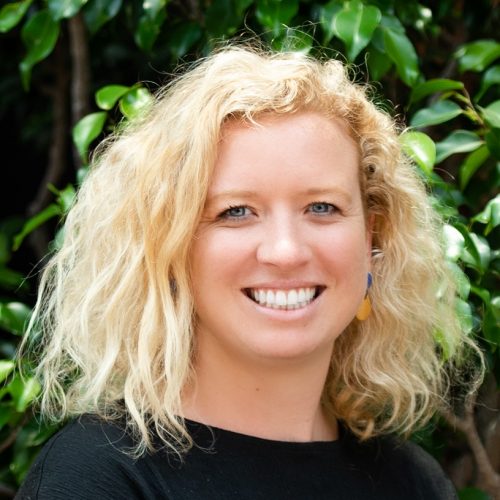
Rebecca is an occupational therapist by background and has worked alongside neurodiverse children and their families within early years, primary and high school settings. She is passionate about strengthening the relationships between the team working alongside autistic children, as well as helping young people understand their sensory preferences, finding joy within daily activities and developing independence in activities that are meaningful to them. Currently, Rebecca is the WA State Coordinator for Positive Partnerships, a government-funded project working together with families, carers and schools to provide current, relevant and evidence-informed information through workshops and online resources. Within this role, she travels throughout WA delivering free workshops for families and schools who support an autistic student. Having grown up in a country area herself, this aligns strongly with Rebecca’s belief that everyone should be able to access quality evidence-informed resources and information, no matter where they live.
Culturally Appropriate Services
Presenting with Adam Howie
Current data shows that autism is under-diagnosed among Aboriginal and Torres Strait Islander communities. In many areas, autism is unheard of. Other challenges include lack of access to local services or culturally appropriate diagnostic assessment tools, an absence of trusted relationships, or the fear of shame and blame.
Positive Partnerships provide support for Aboriginal and Torres Strait Islander families with autistic children and the educators who work alongside them. After consultation with communities and the Positive Partnerships National First Nations Reference group, we have developed a range of tools and resources designed for Aboriginal and Torres Strait Islander families.
Our presentation will focus on how we work through community consultation, yarn about autism and explore the free resources that can be used at home, in schools and across other services.
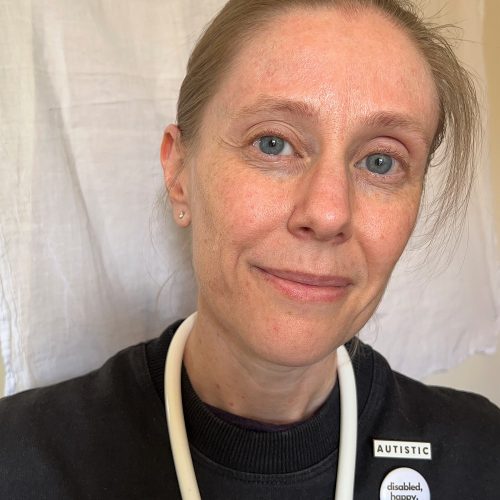
Dr Sarah Bernard (she/her) is a proudly disabled, autistic, ADHDer doctor working at North Metropolitan Health Service in Perth as a Specialist Geriatrician. She champions neurodiversity and disability inclusion in her clinical practice, research and advocacy. Dr Bernard is passionate about raising the profile of neurodivergent, disabled healthcare workers, researchers and students.
Interdependence: Relying on support can lead to great opportunities
Therapeutic interventions for autistic people often focus on independence as the end goal. However, independence involves reducing reliance on external supports, which can come with its own problems. Interdependence is a different approach, grounded in the social model of disability. It reflects how it “takes a village” to deliver the best support to autistic people, and this is actually a good thing! Interdependence makes autonomy, opportunity, choice and justice for autistic and disabled people the end goals. This presentation will show healthcare providers how interdependence in service design makes great business sense. For autistic people and their supporters, strategies to shift the focus of therapy and school goals to an interdependence approach will be explained.
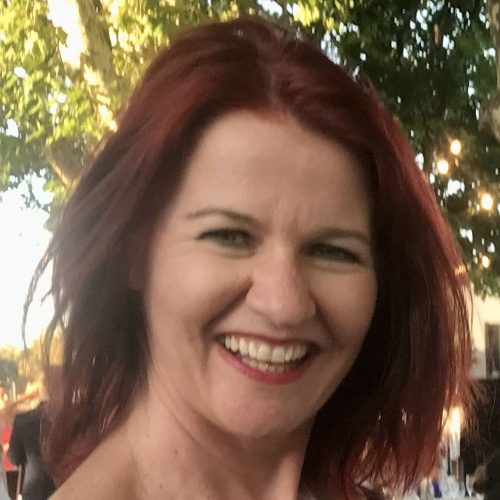
Sharna is a passionate mother of two neurodiverse children who loves cooking and feeding others. She chairs Microenterprise People (MEP), a not-for-profit organisation that promotes meaningful employment for people with disabilities (PWD). MEP collaborates with various entities to improve access to employment and supply chains for microenterprises owned and run by PWD. Sharna also founded Microenterprise Launchpad, which provides personalised, 1:1 support to PWD in their employment journeys. With her background in engineering, trading, and business integration in an extensive range of corporate global roles, Sharna brings valuable expertise to the disability support sector.
How to succeed in your Microenterprise
Presenting with Catherine Wright and Harry Lovekin
Customised Employment is an individualised approach to support NDIS participants to find and succeed in meaningful employment. A Discovery process enables a person to uncover their hidden talents, skills, passions, interests, and abilities. This information is then used to decide if a Job Carve out or their own Microenterprise would provide the most meaningful employment.
Microenterprises owned by people with disabilities (PWD) are as varied as the people who own and run them. They can provide casual, part time or full-time employment for an individual and even grow into a business that employs others. Different people require different levels and types of supports to run and succeed in their businesses and the vision for these businesses vary greatly. Whether the goal is to generate an income that can support a family, provide work which is valued by a person’s community, or to increase their network of peers, the right planning and support will ensure that PWD thrive in their microenterprises and in their lives.
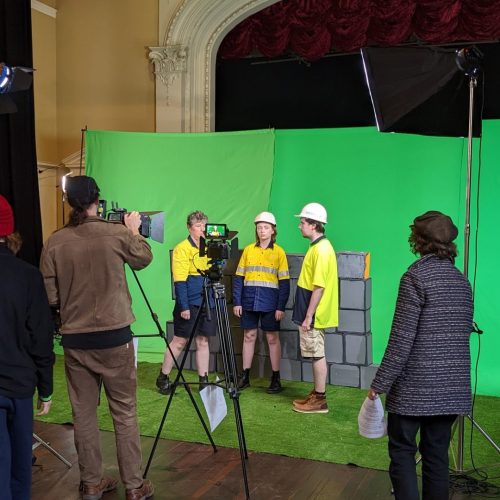
The Spectrum Space Arts Crew is a diverse collective of talented creatives who regularly come together to explore different aspects of the creative arts. Thanks to generous sponsorships and funding, the Arts Crew have had access to a variety of projects over the past 6 years. Last year, they reimagined Shakespeare’s A Midsummer Night’s Dream, rewriting it from a neurodiverse perspective, to celebrate neurodiversity and promote acceptance of difference. In 2023/24 they are part of the Spectrum Space Music Video Project which provides emerging autistic musicians/videographers/artists/performers with the opportunity to practice and showcase their collective creative talent.
This presentation introduces new Arts Crew member Robert Kett, who will join long time Arts Crew members Jennifer Harland and Elias Joslin, and mentor Louise Sheehy to discuss the insights they have gained from their involvement in different projects including theatre, song writing, singing, acting, filmmaking, and other creative pursuits that have had a positive influence on their lives.
Arts as an Engagement Tool
Presented by Louise Sheehy, Jennifer Harland, Robert Kett & Elias Joslin
In this presentation, members of the Spectrum Space Creative Arts Crew explore the significance of artistic endeavours in the lives of autistic individuals, reflecting the diverse interests within the community. Through past arts projects driven by participant interests, the group underscores the positive impact of neurodiverse, group-based programs for fostering social connection and a sense of belonging. They will also discuss how activities like singing, dancing, playing music, acting, film making, and all things creative make life more fun, including the exciting new Lotterywest funded Music Video Project they’re undertaking.
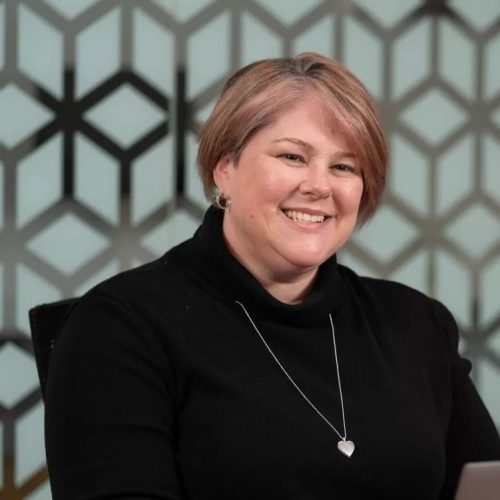
Tammy is an experienced trainer and disability consultant. Tammy participates in several disability advocacy groups and is a Board member for The Autistic Realm Australia (TARA). She is also autistic, an ADHD’er and Dyslexic with Auditory Processing Disorder, and multiple chronic health issues.
Autistic Adults – Our Time to Shine
Autistic adults have been the subjects of conversation across Australia with the National Autism Strategy and the National Disability Insurance Scheme Review highlighting the emergence of late diagnosed adults who are seeking resources and supports.
Speakers Tammy McGowan, Andrew Radford, Lydia Dean and Kerryn Burgoyne share their individual experiences of navigating adulthood and highlight the barriers and protective factors that apply to their own lives.
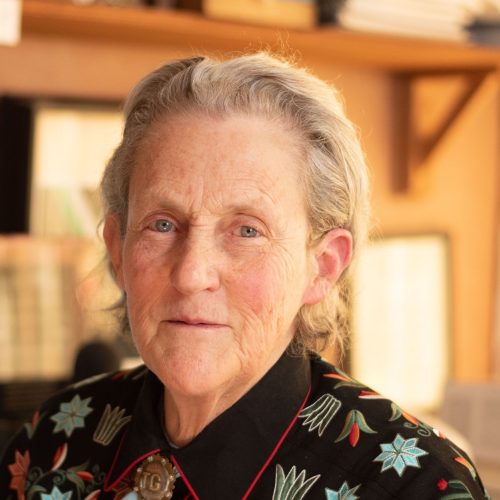
Dr Grandin did not talk until she was three and a half years old. She was fortunate to get early speech therapy. Her teachers also taught her how to wait and take turns when playing board games. She was mainstreamed into a normal kindergarten at age five. When she was young, she was considered weird and teased and bullied in high school. The only place she had friends was activities where there was a shared interest such as horses, electronics or model rockets. Her science teacher was an important mentor who encouraged her interest in science. When she had a new goal of becoming a scientist, she had a reason for studying. Today half the cattle in the United States are handled in facilities she has designed.
Dr Grandin became a prominent author and speaker on both autism and animal behaviour and today she is a Distinguished Professor of Animal Science at Colorado State University. She also has a successful career consulting on both livestock handling equipment design and animal welfare. She has featured on radio and television shows, including a BBC Special “The Woman Who Thinks Like a Cow”, as well as in many articles in publications such as Time Magazine, New York Times, Discover Magazine, Forbes and USA Today. HBO made an Emmy Award winning movie about her life; she was inducted into the American Academy of Arts and Sciences in 2016 and was inducted into the Colorado Authors’ Hall of Fame in 2023.
The Changes in Autism – An exclusive interview with Temple Grandin
Dr Grandin is renowned worldwide not only for her expertise in animal behaviour, but for her advocacy work in the field of autism. She has used her work to understand her own autistic mind and shares her message about differently abled brains with audiences all over the world. This pre-recorded interview using questions by Ana Palacios gives an insight into Dr Grandin’s thoughts on her childhood and what role both her parents and animals played in her life and development, the education system’s inability to cope with different kinds of minds, autistic skills, and employment opportunities. It discusses Dr Grandin’s research on visual thinking and object/spatial thinking, autism acceptance and the changes of social rules and norms over time, as well as the challenges and opportunities autistic children experience today and what the future of autism might be. Introduced live by Ana Palacios, this exclusive recorded interview offers a unique insight into the mind of one of the world’s most fascinating humans and her groundbreaking work.
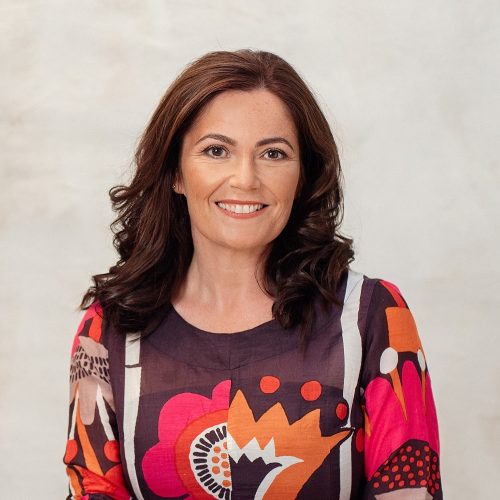
Dr Theresa Kidd is a clinical psychologist, research fellow and the clinical director of The Kidd Clinic, a private psychology group practice focused on Autism Spectrum Conditions and anxiety in Perth. Theresa is committed to helping neurodivergent individuals of all ages to minimise their challenges, increase their strengths and to achieve their life goals. Drawing from her own experience of living within a neurodivergent (including PDA) family, Theresa is passionate about increasing family quality of life by assisting families to be as strong and healthy as possible.
With a passion for intervention research, Theresa embarked on a PhD which focused on using family-based cognitive behavioural therapy (CBT) to reduce anxiety in autistic adolescents. Concurrently, she co-developed and managed the Curtin University Specialist (peer) Mentoring Program to support autistic university students to successfully engage in tertiary settings. Following, she embarked on a post-doctoral research fellowship with Macquarie University where she coordinated a national trial to reduce anxiety and bullying victimisation in children.
In addition to her clinical and research work, and supervising other psychologists, she regularly presents to parents and professionals on Autism and co-occurring mental health problems, and on Pathological Demand Avoidance. She has co-authored several articles and manuals related to Autism and has recently written a book, Helping Autistic Teens to Manage their Anxiety.
School ‘Can’t’ – Reframing school refusal and assisting Autistic students to re-engage educationally
Presenting with Miriam Kirby
With school being the biggest trigger for anxiety symptoms for Autistic students, being unable to attend school occurs significantly more often compared to non-autistic peers. We prefer to reframe school refusal as ‘school can’t’ because many of our young people would like to be able to attend school but just cannot. Parents may observe verbal and physical refusal, pleading, clinging, crying, aggression and threats as they desperately try to take their child to school. Missing days of school can have a negative effect on academic and social development and can lead to full disengagement from school. This presentation will outline the main reasons why ‘school can’t’ occurs for Autistic students and introduces a model that provides a map for re-engagement as well as a brief overview of alternative education pathways when school is not working.
Participants will receive a copy of the AAA School Reintegration Model and accompanying guide along with other practical templates and resources to assist with School Can’t.
This training is suitable for parents, therapists and teachers and provides:
Supporting Neurodivergent and Gender Diverse Young People
Presenting with Laura / Remus Short
Parents often ask how they can best support their Autistic/ neurodivergent child or adolescent who is trans or gender diverse. In this informative presentation, Dr Theresa Kidd (Clinical Psychologist, pronouns she/her/hers) will briefly introduce the common co-occurrence of neurodivergence and gender diversity and outline some important considerations for parents when supporting our Double Rainbow young people.
We will signpost helpful resources for parents and provide time for questions.